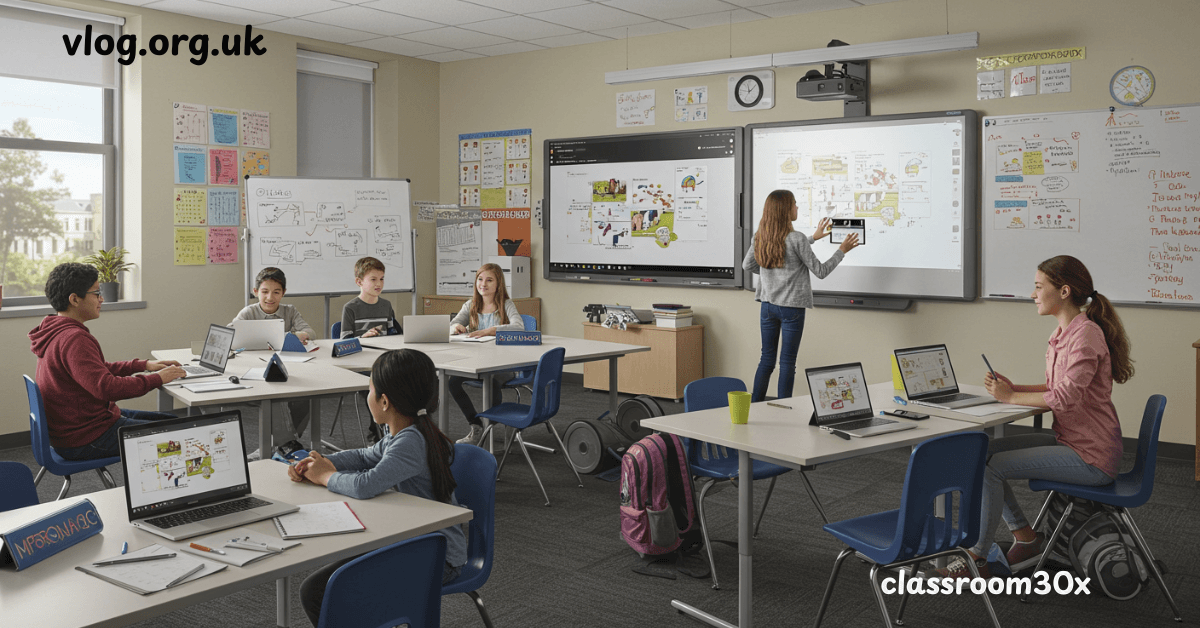
Box WUSTL: Empowering Alzheimer’s Research and Academic Excellence at Washington University
What is Box WUSTL? Exploring the Cloud Storage Solution
Box WUSTL is Washington University in St. Louis’s dedicated cloud-based file management platform. Designed to support cutting-edge research, seamless academic collaboration, and secure digital storage, Box WUSTL offers a modern, streamlined solution for students, faculty, and researchers. At its core, it allows users to store, access, and share files anytime, anywhere, with powerful file naming conventions, version control, and customizable access permissions.
Powered by industry-leading cloud infrastructure, Box WUSTL meets rigorous data security policies, ensuring research data, personal information, and academic materials remain safe. For those navigating complex projects or working across multiple departments, Box WUSTL is more than storage—it’s a hub of productivity, connectivity, and innovation. WashU leverages this platform to amplify collaboration, reduce administrative friction, and foster academic breakthroughs.
Beyond the Cloud: Physical Storage Resources at WashU
While Box WUSTL excels in cloud storage, Washington University also offers secure and flexible physical storage options. From temperature-controlled storage units to specialized archival systems for sensitive materials, WashU ensures that researchers and departments can store physical documents, biological samples, or equipment safely. These resources support laboratories and offices that require long-term, stable storage beyond the digital realm.
Departments at WashU can reserve physical storage units tailored to their unique research needs. Whether it’s sensitive Alzheimer’s Disease (AD) documentation or long-term storage of PET imaging records, these resources ensure nothing is lost or compromised. Physical and cloud-based options work together to preserve integrity, enable access, and accelerate scientific progress.
Document Management and Best Practices for Box WUSTL
Efficient document management is essential at a research institution like WashU. Box WUSTL encourages best practices such as standardizing file naming conventions, maintaining updated versions, and setting precise access permissions. These steps streamline team communication and prevent data loss or confusion.
Academic resources and collaborative projects rely on Box integration with apps like Microsoft Office, Google Workspace, and MATLAB. Whether tracking biomarker reduction from clinical trials or organizing grant proposals, the system helps users stay focused and organized. WashU provides guidance and training to ensure every user maximizes the potential of this platform.
Troubleshooting Common Box WUSTL Issues
Occasionally, users may face syncing errors, permission issues, or login difficulties with Box WUSTL. These can usually be resolved through basic troubleshooting: checking folder permissions, updating apps, or clearing browser caches. WashU IT offers dedicated support to ensure minimal downtime and rapid resolution.
Integration issues between Box and third-party platforms like MATLAB or Adobe may also arise. These are generally resolved by ensuring the latest API tokens and account permissions are in place. WashU’s support teams provide comprehensive solutions to help students and researchers stay focused on what matters: breakthrough science and academic discovery.
Amyloid-targeting Therapies and the Path to Safer Treatments for Alzheimer’s Disease
Recent years have brought a wave of hope in the form of amyloid-targeting therapies for Alzheimer’s Disease (AD). Biogen’s Aducanumab, Eisai Pharmaceuticals’ Lecanemab, and Eli Lilly’s Donanemab represent an unprecedented shift in therapeutic strategy, aiming to reduce amyloid-beta plaque through antibody treatment. These therapies target biomarker reduction, a promising yet complex approach in halting cognitive decline.
However, the road to regulatory approval is intricate. The FDA, EMA, and Australian TGA continue evaluating evidence of efficacy, safety, and meaningful outcomes. Gantenerumab, developed by Roche, exemplifies the cautious optimism surrounding these treatments. As researchers test amyloid load reduction with PET imaging and assess effects on Mild Cognitive Impairment (MCI) and early dementia stages, the scientific community remains hopeful yet cautious.
Clinical Endpoints and the Role of Amyloid Reduction in Alzheimer’s Trials
Amyloid PET and neurodegeneration markers have become key surrogate endpoints in trials. By tracking amyloid load reduction, researchers can infer treatment impact on disease progression. However, proving that amyloid-beta clearance translates to improved clinical outcomes is still an evolving challenge.
The importance of these surrogate markers was emphasized during the FDA’s accelerated approval of Aducanumab. Despite mixed clinical results, the biomarker response paved the way for conditional approval. Prentice’s Criteria are now central in determining the reliability of such markers in replacing traditional cognitive measures.
The Necessity of Meaningful Clinical Endpoints in Alzheimer’s Disease Trials
While biomarker reduction is promising, it must correlate with meaningful clinical outcomes to justify therapeutic use. Clinical endpoints, including delayed progression from MCI to dementia and improved activities of daily living, are vital to securing broad trust and acceptance.
The US Veteran’s Administration and global agencies demand treatments that enhance patients’ lives, not just scan results. Future trials must incorporate patient-centered measures to ensure treatments provide tangible benefits beyond biological targets. This is essential for long-term efficacy and ethical validation.
Evaluating the Complexities of Amyloid Targeting Treatments for AD
Amyloid-targeting agents present both promise and risk. Lecanemab and Donanemab showed positive trends in clinical trials, but side effects like brain swelling (ARIA) urge caution. Understanding the trade-offs between therapeutic efficacy and safety is crucial.
Combination approaches may offer a path forward. Pairing anti-amyloid drugs with neuroinflammation modulators or lifestyle interventions could enhance outcomes. Research collaboration at institutions like WashU is instrumental in advancing these insights, with Box WUSTL supporting data sharing and storage throughout these efforts.
Conclusion: Mastering Storage and Resources at WashU
Box WUSTL is not just a tool—it is the backbone of academic productivity and medical advancement at Washington University. With seamless integration, top-tier data security, and support for collaboration, Box WUSTL empowers researchers to focus on what truly matters: discovery, impact, and innovation.
As breakthroughs in Alzheimer’s treatments and clinical research continue, the need for secure, scalable, and accessible storage is more important than ever. By uniting digital and physical storage resources, WashU ensures its community remains at the forefront of science and education.
Conclusion: The Need for Robust Clinical Trials in Alzheimer’s Disease
The promise of amyloid-targeting therapies brings a new era in Alzheimer’s research, but excitement must be tempered with rigorous science. Clear clinical endpoints, diverse patient populations, and comprehensive outcome tracking are essential to ensure therapies truly benefit patients.
Institutions like Washington University are leading the way by leveraging robust tools like Box WUSTL to facilitate transparent, collaborative, and ethically grounded research. The future of Alzheimer’s Disease treatment lies not only in biological breakthroughs but in our collective commitment to evidence-based medicine.
Frequently Asked Questions (FAQs)
What is Box WUSTL used for at Washington University? Box WUSTL is a cloud storage and file sharing solution used by students, faculty, and researchers at WashU to manage documents securely, collaborate in real time, and store sensitive research data.
Is Box WUSTL safe for storing research data? Yes. Box WUSTL complies with strict data security policies, offering encrypted storage, access controls, and integration with WashU’s IT infrastructure to ensure safety and compliance.
How does Box WUSTL support Alzheimer’s research? Box WUSTL allows research teams to store PET scan images, biomarker data, and clinical documentation securely, facilitating collaboration and version control critical for Alzheimer’s clinical trials.
What are clinical endpoints in Alzheimer’s trials? Clinical endpoints refer to measurable outcomes such as cognitive function, delay in dementia progression, or quality of life improvements, used to evaluate treatment efficacy.
What is the significance of amyloid reduction in Alzheimer’s treatment? Amyloid-beta plaque buildup is a hallmark of AD. Therapies that reduce amyloid may slow cognitive decline, though the clinical benefit must be demonstrated through long-term studies.
Are physical storage resources still relevant at WashU? Absolutely. For sensitive or archival materials that cannot be digitized, WashU provides physical storage units that are secure, customizable, and essential for long-term research needs.




